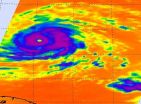(Press-News.org) Washington, DC, (September 14, 2010) — A new study released today by the American Lung Association, and conducted by researchers at Penn State University, finds that helping smokers quit not only saves lives but also offers favorable economic benefits to states. The study, titled Smoking Cessation: the Economic Benefits, provides a nationwide cost-benefit analysis that compares the costs to society of smoking with the economic benefits of states providing cessation (quit-smoking) coverage. The study comes at an important time, as important cessation benefit provisions are being implemented at the federal and state levels as a result of healthcare reform legislation.
Each year, tobacco use kills 393,000 people in America, and this new study identifies significant and staggering costs directly attributable to death and disease caused by smoking. For example, the study finds that smoking results in costs to the U.S. economy of more than $301 billion. This includes workplace productivity losses of $67.5 billion, costs of premature death at $117 billion, and direct medical expenditures of $116 billion.
The study also calculates the combined medical and premature death costs and workplace productivity losses per pack of cigarettes. The nationwide average retail pack of cigarettes is $5.51. The costs and workplace productivity losses nationwide equal $18.05—more than 300 percent the average retail price of a cigarette pack.
"This study spells out in dollars and cents the great potential economic benefits to states of helping smokers quit. We urge the District of Columbia and all states to offer full coverage of clinically proven cessation treatments for smokers, which will not only save lives but also money," Charles D. Connor, President and CEO of the American Lung Association.
Smoking is the number one preventable cause of illness and death in the United States and surveys show that 70 percent of tobacco users want to quit. Quitting can often take several attempts before a smoker is successful. Using evidence-based treatments increases smokers' chances of quitting – but many smokers don't have access to or don't know about what kind of treatments are available to them.
In addition to identifying the staggering costs of smoking to the U.S. economy, this new study now provides state governments with compelling economic reasons to help smokers quit. For example, the study finds that if states were to invest in comprehensive smoking cessation benefits, each would receive, on average, a 26 percent return on investment. In other words, for every dollar spent on helping smokers quit, states will see on average a return of $1.26.
Some states (and the District of Columbia) would see a higher return than others. For example, the study finds that the District of Columbia would receive the highest return on its investment. For every dollar spent on smoking cessation treatments, it would see a return of $1.94. Other states with higher than average returns include the following: Louisiana ($1.47), Massachusetts ($1.43), Maine ($1.41), Ohio ($1.41) and North Dakota ($1.41). State specific data can be found at www.lungusa.org/cessationbenefits.
The study derives these economic benefits by considering lower medical costs due to fewer people smoking, increased productivity in the workplace and reduced absenteeism and premature death due to smoking.
Some of the highest rates of smoking are found among people enrolled in Medicaid, the joint federal and state health program for low-income people. The American Lung Association urges every state to provide all Medicaid recipients and state employees with comprehensive, easily accessible tobacco cessation benefits. A comprehensive cessation benefit includes all seven medications and three types of counseling recommended by the U.S. Public Health Service for tobacco cessation. Only six states now provide comprehensive coverage for Medicaid recipients: Indiana, Massachusetts, Minnesota, Nevada, Oregon and Pennsylvania.
The Lung Association also recommends that private insurance plans and employers offer comprehensive cessation coverage and encourages states to require them to cover these treatments. Only seven states have such requirements now: Colorado, Maryland, New Jersey, New Mexico, North Dakota, Oregon and Rhode Island.
INFORMATION:
About the Study
Researchers at Penn State University with expertise in health economics and administration performed this cost-benefit analysis using government and other published data. The analysis compares the costs of providing smoking cessation treatments (including price of medications and counseling and lost tax revenue) to the savings possible if smokers quit (including savings in health care expenditures, premature death costs, and productivity losses).
Funding for the study was provided through an unrestricted research grant from Pfizer Inc.
About the American Lung Association
Now in its second century, the American Lung Association is the leading organization working to save lives by improving lung health and preventing lung disease. With your generous support, the American Lung Association is "Fighting for Air" through research, education and advocacy. For more information about the American Lung Association or to support the work it does, call 1-800-LUNG-USA (1-800-586-4872) or visit www.LungUSA.org.
Antibiotics can work miracles, knocking out common infections like bronchitis and tonsillitis. But according to the Center for Disease Control, each year 90,000 people in the U.S. die of drug-resistant "superbugs" ― bacteria like Staphylococcus aureus (MRSA), a deadly form of staph infection resistant to normal antibiotics. Although hospital patients are particularly susceptible as a result of open wounds and weakened immune systems, the bacteria can infect anyone.
Dr. Micha Fridman of Tel Aviv University's Department of Chemistry is now developing the next generation ...
NEW YORK (Embargoed until September 14, 2010: 5:00 p.m. U.S. Eastern Time)— A new peer-reviewed paper by the Wildlife Conservation Society and other groups reveals an ominous finding: most of the world's last remaining tigers—long decimated by overhunting, logging, and wildlife trade—are now clustered in just six percent of their available habitat. The paper identifies 42 'source sites' scattered across Asia that are now the last hope and greatest priority for the conservation and recovery of the world's largest cat.
The securing of the tiger's remaining source sites ...
Did I turn off the stove, or did I just imagine it? Memory isn't always reliable. Psychological scientists have discovered all sorts of ways that false memories get created, and now there's another one for the list: watching someone else do an action can make you think you did it yourself.
The team of psychological scientists who found the new way to create false memories weren't setting out to make a big discovery. They were trying to learn more about imagination, another way that false memories get created. But then in an experiment, they found that people who had watched ...
NASA satellites provide infrared images to forecasters that show temperature, and today's imagery of powerful Hurricane Igor showed the storm's perfect form and the warm ocean waters around it that are keeping it fueled. NASA's infrared data also revealed a huge difference of 170 degrees between the cold cloud tops in Hurricane Igor and the warm sea surface temperatures powering it below.
When NASA's Aqua satellite passed over Igor on Sept. 14 at 14:47 UTC (10:47 a.m. EDT) the Atmospheric Infrared Sounder (AIRS) instrument captured icy cold cloud top temperatures in ...
New research findings from the Université de Montréal reveals that children as young as four are able to understand and use irony. This study, published recently in the British Journal of Developmental Psychology, may impact the way parents communicate with their family.
"Previous studies concluded that irony wasn't understood before the age of eight or ten," says Stephanie Alexander, a postdoctoral student at the Université de Montréal's Department of Social and Preventive Medicine and senior author of the study. "However, these studies were mostly done in a laboratory ...
OAK RIDGE, Tenn., Sept. 14, 2010 -- As industries and consumers increasingly seek improved battery power sources, cutting-edge microscopy performed at the Department of Energy's Oak Ridge National Laboratory is providing an unprecedented perspective on how lithium-ion batteries function.
A research team led by ORNL's Nina Balke, Stephen Jesse and Sergei Kalinin has developed a new type of scanning probe microscopy called electrochemical strain microscopy (ESM) to examine the movement of lithium ions through a battery's cathode material. The research, "Nanoscale mapping ...
(Garrison, NY) The most politically charged feature of the health reform law is the mandate that legal residents have health insurance. Within weeks of the law's passage, twenty states had filed lawsuits charging that the mandate is unconstitutional because it gives the federal government more power than it actually has. The state lawsuits are widely expected to reach the Supreme Court next year. Legal scholar Lawrence O. Gostin writes that the health insurance mandate rests on firm legal ground.
Under the mandate, which goes into effect in 2014, the federal government ...
Students who enter medical school with high debt levels, low scores on the Medical College Admissions Test (MCAT) or who are non-white are more likely to face difficulties that may prevent graduation or hinder acceptance into a residency program if they do graduate, according to a nationwide study of students enrolled in MD programs.
The research, from Washington University School of Medicine in St. Louis, is reported Sept. 15 in the Journal of the American Medical Association.
The study of more than 84,000 students who entered U.S. medical schools from 1994-1999 showed ...
Data and research on what it really takes for seniors to make ends meet in each of California's 58 counties will be released today at the state Capitol in Sacramento.
The release is the latest update of the Elder Economic Security Standard Index (Elder Index), a tool that measures the actual costs of basic necessities for older adults. The Elder Index is quickly replacing federal poverty level (FPL) guidelines as a new standard for evaluating and meeting the needs of seniors across California.
"This year, the federal government officially acknowledged it's time ...
NEW YORK, September 14, 2010 – A blood test at the age of 60 can accurately predict the risk that a man will die from prostate cancer within the next 25 years, according to researchers at Memorial Sloan-Kettering Cancer Center, in New York, and Lund University, in Sweden. The findings, published today online in the British Medical Journal, could have important implications for determining which men should be screened after the age of 60 and which may not benefit substantially from continued prostate cancer screening.
The study analyzed blood samples from 1,167 men born ...

